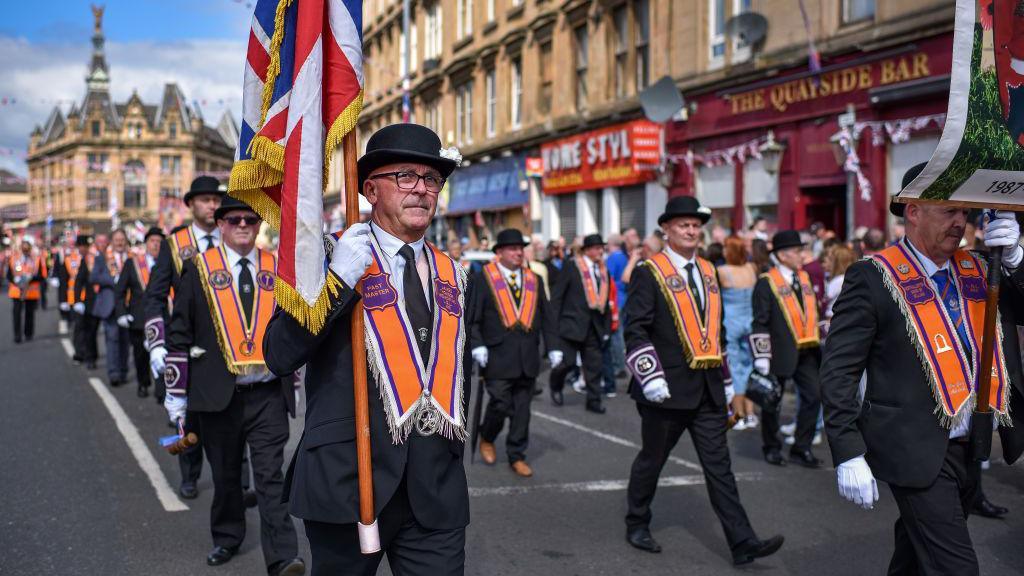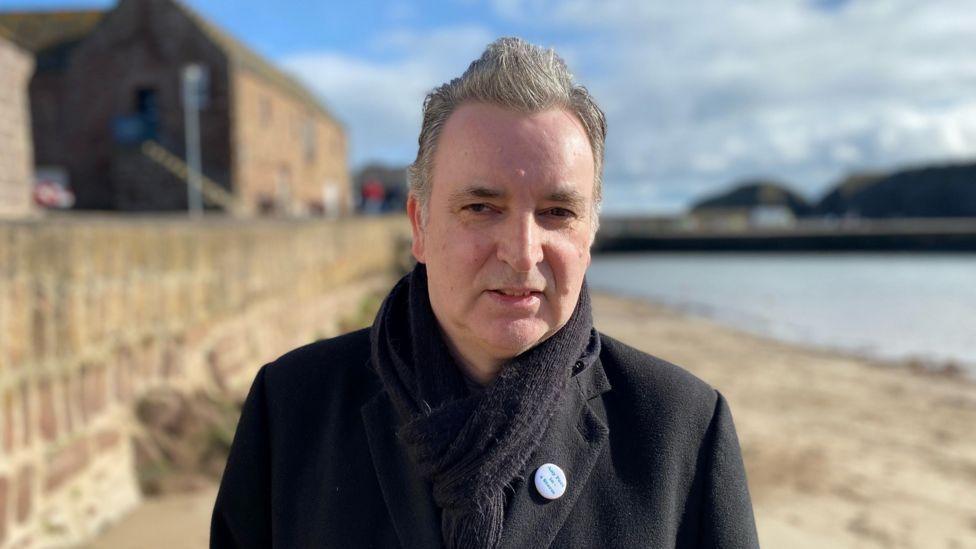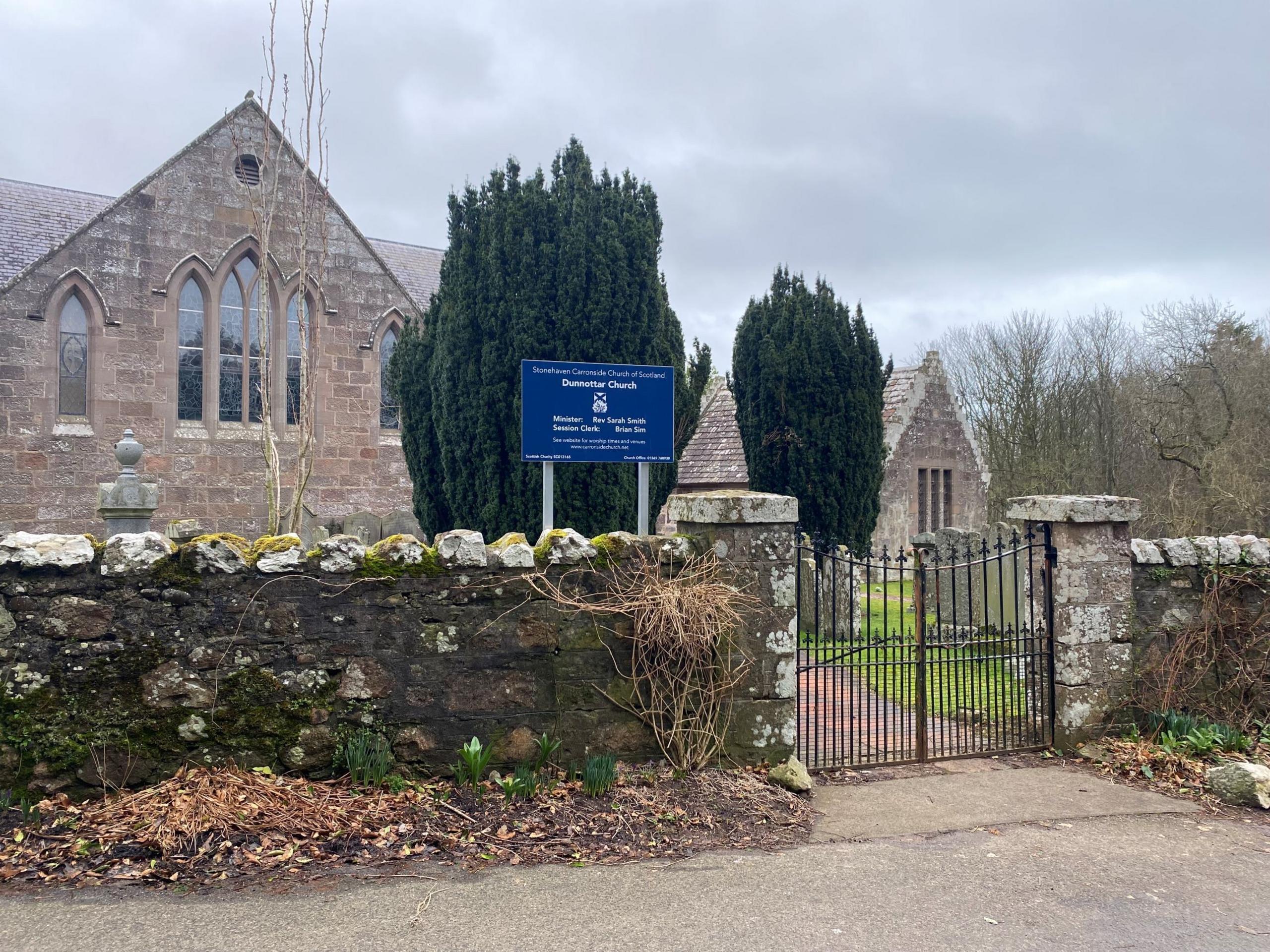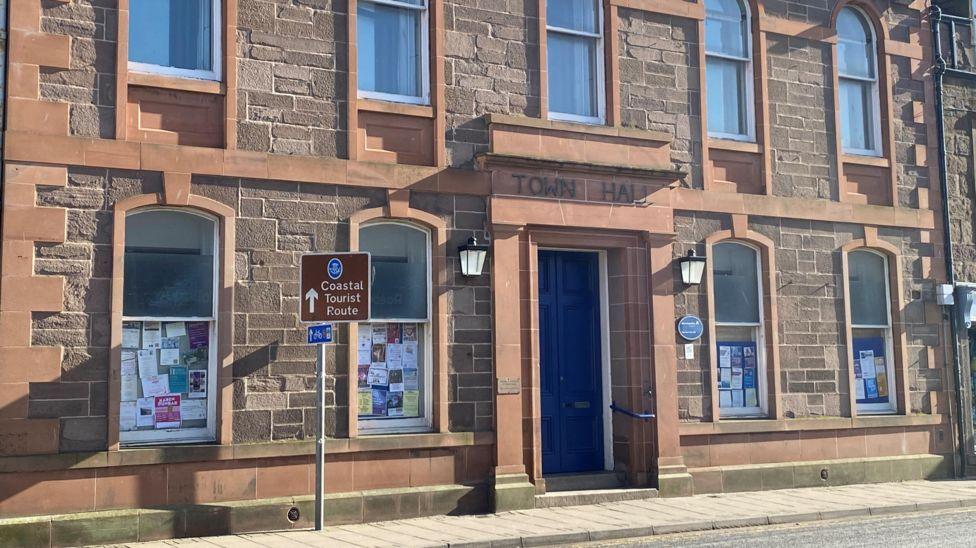Orange Lodge parade in Stonehaven blocked for 'safety'

An Orange Order parade in Glasgow in 2019
- Published
A controversial parade to mark an Orange Lodge opening in Stonehaven has been blocked.
Aberdeenshire Council's Kincardine and Mearns area committee decided that the procession on 16 March could not go ahead for safety reasons.
A petition against the march, from the town hall to Dunnottar cemetery, had previously attracted nearly 10,000 signatures.
Representatives of the Grand Orange Lodge of Scotland stated that they would now consider legal action, and that they had been the victims of a "frenzy" of speculation.
The parade was to mark the opening of a new Orange Lodge in the area, which members of the Lodge stated was due to there being "significant interest" in the group.
However the proposals sparked objections from some locals in the area, who said they were concerned it would cause violence and force local shops and pubs to shut for the day.
A motion was raised by Cllr Wendy Agnew that the procession would affect "public safety and public order".
One councillor, Alan Turner, said that he had not known anything in his "50 plus years" that had "driven anxiety" the way the proposed parade had.

Neil Young opposed the proposed march
Other councillors said the parade should have been proposed as an event rather than a public procession.
The motion was passed unanimously.
The Aberdeen Central MSP Kevin Stewart said that he was "extremely pleased" at the decision.
He told BBC Scotland News: “This is a clear message that there is no place for sectarianism, division and bigotry in the north east.”
James MacLean, the grand treasurer of the Grand Orange Lodge of Scotland, stated after the decision that the evidence against the group was "hearsay" and had been worked up by "keyboard warriors" online who had caused a "frenzy" on social media.
He added: "This has been an electronic campaign largely conducted by keyboard warriors with the single and avowed purpose of restricting the human rights of the loyal Orange institution."
Parades in the region had earlier been described as "without precedent in modern times" by police at the meeting.

The parade would have concluded at Dunnottar cemetery
Jim Stephen of the Stonehaven and District Community Council stated that the parade should not be given the go-ahead for health and safety reasons.
He cited fears that many local shops would chose to close on the day for fear of "soccer casuals" causing violence.
Mr Stephen said: "We don't want trouble in our town."
Speaking after the meeting Mr Stephen told BBC Scotland News that he was "absolutely delighted".
The original online petition against the parade claimed that the group were "deeply rooted in sectarianism" and that any parade would "severely disrupt daily activities."
It added that the processions often "foment a threatening atmosphere, and can spill over into violence and abuse", claims that were denied by the Lodge.
Neil Young, who organised the petition, spoke at the meeting, where he branded the Orange Order "a hate group", which the Lodge also rejected.
He cited posts on social media by the Pride of the Rock flute band that celebrated William "Big Bill" Campbell, of paramilitary group the Ulster Volunteer Force.

Organisers planned to begin the parade at Stonehaven Town Hall
The flute band were scheduled to take part in the march.
In response, Mr MacLean stated: "We do not practice intolerance, we do not intend to disturb the peace or good order of society."
Organisers had insisted any risk of disruption was "low" and described comments made at the meeting by protestors as "anti-Orange rhetoric".
They also expressed frustration at the suggestion they turn down any music on the parade when near churches on the proposed route.
According to papers submitted to the area committee, around 200 people, including the Pride of the Rock flute band, were expected to attend the parade.
This figure was disputed by those opposed to the march, who said the number could be much higher.
An impact assessment carried out by Aberdeenshire Council prior to the meeting found that the majority of possible "negative impacts" could be mitigated but that certain aspects, such as less footfall in the area due to locals staying away, could not be reduced.
The organisers have a right to appeal the decision in the courts.